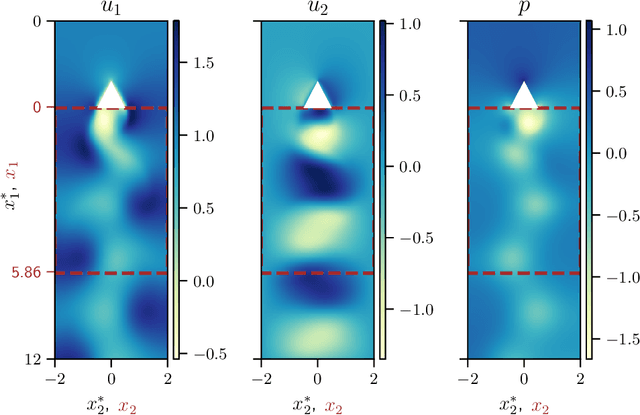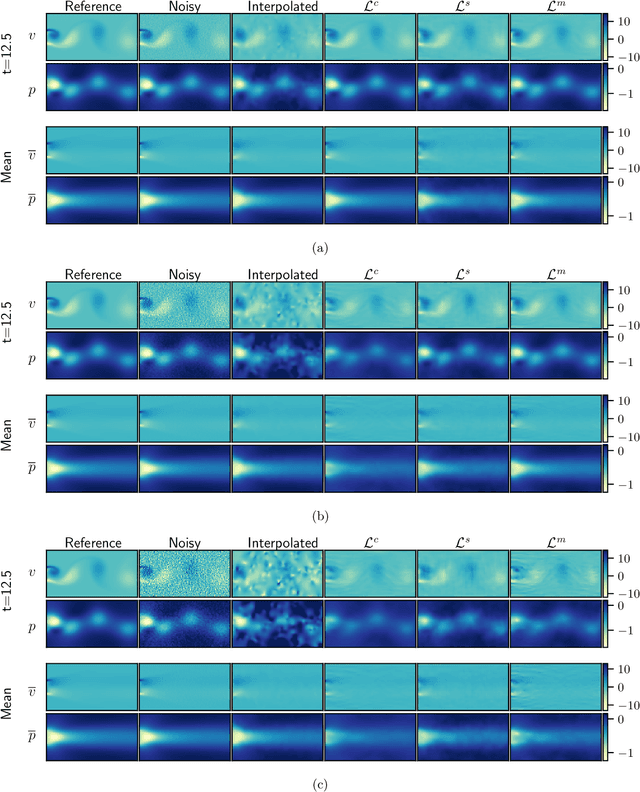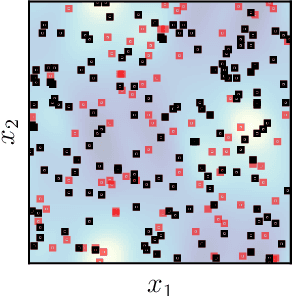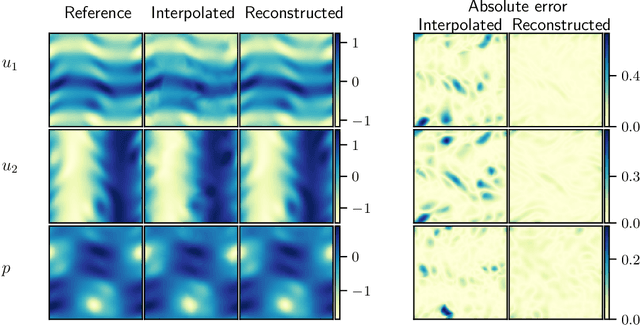Reconstructing unsteady flows from sparse, noisy measurements with a physics-constrained convolutional neural network
Paper and Code
Aug 30, 2024



Data from fluid flow measurements are typically sparse, noisy, and heterogeneous, often from mixed pressure and velocity measurements, resulting in incomplete datasets. In this paper, we develop a physics-constrained convolutional neural network, which is a deterministic tool, to reconstruct the full flow field from incomplete data. We explore three loss functions, both from machine learning literature and newly proposed: (i) the softly-constrained loss, which allows the prediction to take any value; (ii) the snapshot-enforced loss, which constrains the prediction at the sensor locations; and (iii) the mean-enforced loss, which constrains the mean of the prediction at the sensor locations. The proposed methods do not require the full flow field during training, making it suitable for reconstruction from incomplete data. We apply the method to reconstruct a laminar wake of a bluff body and a turbulent Kolmogorov flow. First, we assume that measurements are not noisy and reconstruct both the laminar wake and the Kolmogorov flow from sensors located at fewer than 1% of all grid points. The snapshot-enforced loss reduces the reconstruction error of the Kolmogorov flow by approximately 25% compared to the softly-constrained loss. Second, we assume that measurements are noisy and propose the mean-enforced loss to reconstruct the laminar wake and the Kolmogorov flow at three different signal-to-noise ratios. We find that, across the ratios tested, the loss functions with harder constraints are more robust to both the random initialization of the networks and the noise levels in the measurements. At high noise levels, the mean-enforced loss can recover the instantaneous snapshots accurately, making it the suitable choice when reconstructing flows from data corrupted with an unknown amount of noise. The proposed method opens opportunities for physical flow reconstruction from sparse, noisy data.
 Add to Chrome
Add to Chrome Add to Firefox
Add to Firefox Add to Edge
Add to Edge